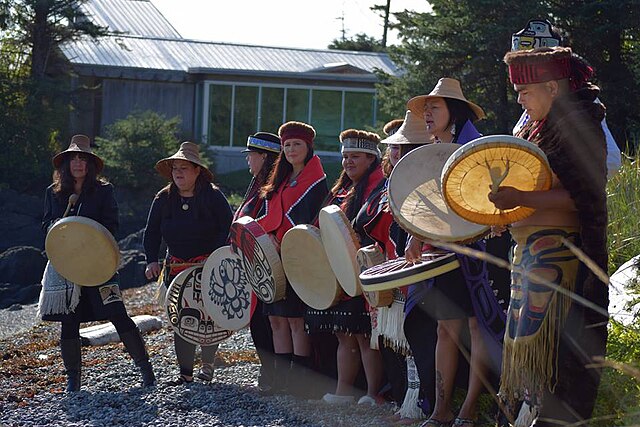Haida is the language of the Haida people, spoken in the Haida Gwaii archipelago off the coast of Canada and on Prince of Wales Island in Alaska. An endangered language, Haida currently has 24 native speakers, though revitalization efforts are underway. At the time of the European arrival at Haida Gwaii in 1774, it is estimated that Haida speakers numbered about 15,000. Epidemics soon led to a drastic reduction in the Haida population, which became limited to three villages: Masset, Skidegate, and Hydaburg. Positive attitudes towards assimilation combined with the ban on speaking Haida in residential schools led to a sharp decline in the use of the Haida language among the Haida people, and today almost all ethnic Haida use English to communicate.
A woman hangs posters with the Haida words for various body parts
Haida text on Old Massett welcome sign
The Haida are an Indigenous group who have traditionally occupied Haida Gwaii, an archipelago just off the coast of British Columbia, Canada, for at least 12,500 years.
Houses and totem poles, 1878
Young Haida woman with lip plate, portrayed in George Dixon's (1789): Voyage autour du monde
Haida drummers and singers greet guests on the shores of Ḵay Linagaay, a millennia-old village in Haida Gwaii.
Haida wait for their Heiltsuk hosts to welcome them to sing and dance at a peace potlatch in Waglisla.






